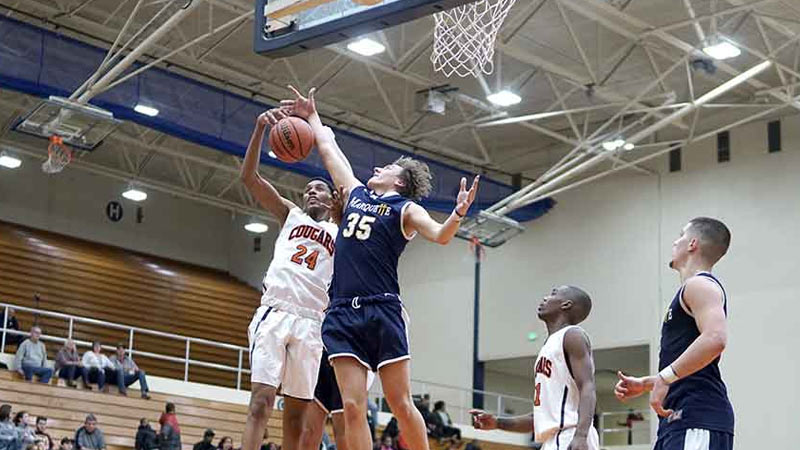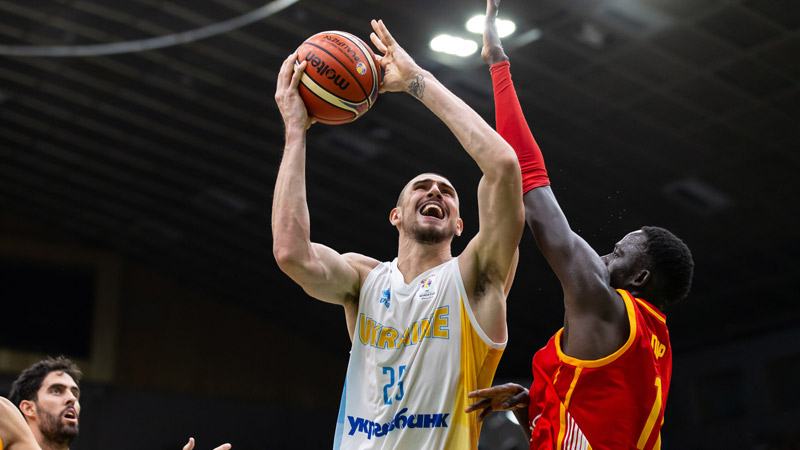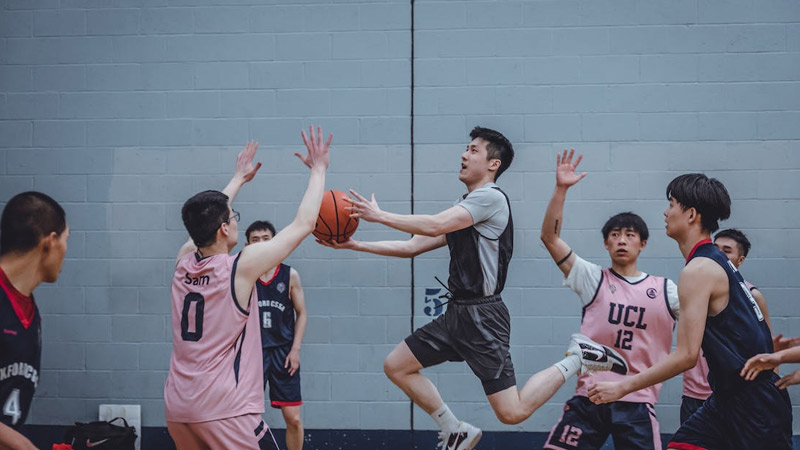The game of basketball relies on rules and regulations to maintain fair play and ensure a level playing field for all participants.
One important aspect of the game is the proper use of hands, as any illegal actions can result in penalties and impact the flow of the game.
In this article, we delve into the concept of the illegal use of hands in basketball, exploring what actions are considered illegal.
Also, we will check out the penalties associated with such infractions, and distinguish between the illegal use of hands and the illegal contact of hands. So, stay focused.
What Is the Illegal Use of Hands in Basketball?
The illegal use of hands in basketball encompasses a range of actions that go against the rules governing hand usage during gameplay.
These rules are implemented to uphold fairness, prevent unfair advantages, and safeguard the well-being of all players on the court.
It is essential for players, coaches, and officials to have a comprehensive understanding of what actions are considered illegal to maintain a level playing field.
By adhering to these regulations, the integrity of the game is preserved, and players can compete in a safe and fair environment.
What Actions Are Counted as the Illegal Use of Hands in Basketball?

Source: sportsdefinitions.com
In this section, we will explore some of the common infractions related to hand usage in basketball.
Holding
Holding is a violation that occurs when a player uses their hands or arms to restrict the movement of an opponent. This can include grabbing, clutching, or physically impeding the freedom of movement.
Holding not only disrupts the flow of the game but also puts the player being held at a disadvantage by limiting their ability to maneuver or defend effectively. It is considered a direct violation of the rules and can lead to fouls and penalties.
Pushing
Pushing involves using hands or arms to forcefully propel or displace an opponent. It is a clear infringement of the rules and is typically met with immediate whistles from the referees.
Pushing not only disrupts the fair balance of the game but also poses a risk of injury to the player being pushed.
In the interest of player safety, pushing is strictly prohibited and can result in fouls, free throws, or even ejection from the game, depending on the severity of the offense.
Reaching In
Reaching in refers to the act of extending one’s hands or arms in an attempt to steal or knock the ball away from an opponent.
While attempting to make a steal is a legitimate defensive move, reaching in becomes an infraction when the defender makes contact with the opponent’s body instead of the ball.
Reaching in fouls is common when a player fails to time their reach properly or engages in excessive or unnecessary contact.
It is essential for defenders to be disciplined and avoid reaching in to prevent foul trouble and maintain a fair defensive stance.
Slapping
Slapping is an action that occurs when a player uses an open hand or arm to strike or hit an opponent. This type of contact is considered dangerous and has the potential to cause harm or injury.
Slapping is strictly prohibited and is met with severe penalties, including fouls, free throws, and possible ejection from the game.
Players must maintain control and discipline, refraining from engaging in any form of physical altercation on the court.
Hand Checking
Hand checking is an infraction that involves using the hand or forearm to impede the progress or movement of an opponent.
It is a common violation that occurs when a defender places their hand or forearm on the offensive player, restricting their ability to maneuver freely.
Hand-checking disrupts the offensive player’s rhythm and can lead to an unfair advantage for the defense. To maintain a fair and balanced game, referees closely monitor hand-checking and penalize defenders who engage in this practice.
What Are the Penalties for the Illegal Use of Hands in Basketball?

Source: thestadiumsguide.com
The penalties for the illegal use of hands in basketball can have varying consequences depending on the nature of the infraction and the level of play. Here are some common penalties associated with the illegal use of hands:
Personal Foul
When a player commits an illegal use of hands action, it is typically considered a personal foul. The severity and intent of the infraction determine the specific penalty.
In most cases, personal fouls result in free throws for the opposing team and the possibility of a loss of possession. If a player accumulates multiple personal fouls, they may be subject to ejection from the game.
Team Foul
In basketball, teams have a limited number of fouls they can commit within a specific period before entering a penalty situation.
When a team reaches a certain threshold of fouls (usually five or more), the opposing team enters a bonus situation.
This means that the opposing team is awarded free throws for any subsequent fouls committed by the defensive team.
Technical Foul
In some instances, an illegal use of hands action can be deemed as a flagrant or intentional foul, warranting a technical foul.
Technical fouls result in free throws for the opposing team and can lead to a potential ejection for the player involved.
Additionally, technical fouls may result in further consequences, such as fines or suspensions, depending on the level of play.
Unsportsmanlike Conduct
Repeated or particularly flagrant illegal use of hands actions may result in unsportsmanlike conduct penalties.
These penalties go beyond the immediate game consequences and can lead to more severe disciplinary actions, including ejection from the game, further game suspensions, or fines.
Unsportsmanlike conduct penalties are intended to deter players from engaging in dangerous or disrespectful behavior on the court.
It is important to note that the specific penalties and consequences for the illegal use of hands can vary depending on the basketball league or organization’s rules and regulations.
Differences Between Illegal Use of Hands and Illegal Contact of Hands
In the game of basketball, it is crucial to understand the distinction between the illegal use of hands and the illegal contact of hands.
These terms encompass different actions and have varying implications within the rules of the game.
Illegal Use of Hands
The illegal use of hands involves actions that directly violate the rules and regulations governing the appropriate use of hands in court.
It refers to actions that violate the rules and regulations regarding the appropriate use of hands, such as holding, pushing, slapping, reaching in, and hand checking.
These actions are typically deemed as fouls and can result in penalties for the offending player or team.
Engaging in any of these actions constitutes a violation of the rules and can lead to a foul being called by the officials, resulting in free throws, possession change, or personal fouls for the player.
Illegal Contact with Hands
On the other hand, illegal contact of hands refers to instances where there is contact between the hands or arms of players, but the contact itself may not necessarily violate the rules of the game.
These situations are often considered incidental or unavoidable during the natural flow of play. Some examples of illegal contact of hands include:
Contesting a Shot
When a defender makes contact with an opponent’s hands or arms while attempting to block or contest a shot. This contact is allowed within reasonable bounds as long as it does not significantly impede the shooter.
Reaching for a Loose Ball
When multiple players simultaneously reach for a loose ball, it is common for incidental hand-to-hand contact to occur.
As long as the contact is not excessive or intentional, it is generally considered legal and part of the competitive nature of the game.
While illegal contact of hands may occur during gameplay, it is essential for players and officials to discern between incidental contact and deliberate fouls.
The former is generally accepted as a natural part of the game, while the latter can result in penalties.
FAQs
Can incidental hand contact be considered an illegal use of hands?
No, incidental hand contact that occurs during the normal course of play is not typically considered an illegal use of hands. However, excessive or intentional contact may still result in a foul.
Is hand-checking allowed in basketball?
Hand-checking is generally not allowed in basketball. It is considered a defensive foul and can result in a personal foul being called against the player initiating the contact.
Can a player use their hands to block shots?
Yes, players are allowed to use their hands to block shots, as long as they do not commit a foul in the process. Proper timing and technique are essential to avoid fouling the shooter.
Can hand-checking be allowed in certain basketball leagues?
Some basketball leagues, particularly at the recreational or youth level, may have different rules regarding hand-checking.
It is important to familiarize oneself with the specific rules and regulations of the league in which one is participating.
Are there any situations where holding is allowed in basketball?
No, holding is not allowed in basketball. It is considered a foul and can result in penalties, such as free throws or loss of possession, depending on the severity of the action.
End Call
The illegal use of hands in basketball encompasses various actions that violate the rules and regulations regarding the appropriate use of hands while playing the game.
Holding, pushing, reaching in, slapping, and hand-checking are some of the actions considered illegal.
Penalties for these infractions can range from personal fouls to technical fouls, team fouls, and unsportsmanlike conduct.
It is crucial for players, coaches, and officials to understand the distinctions between the illegal use of hands and illegal contact of hands to ensure fair and safe play on the basketball court.
By promoting proper hand usage and discouraging illegal actions, the game of basketball maintains its integrity and allows players to compete within the established guidelines. Best wishes.







